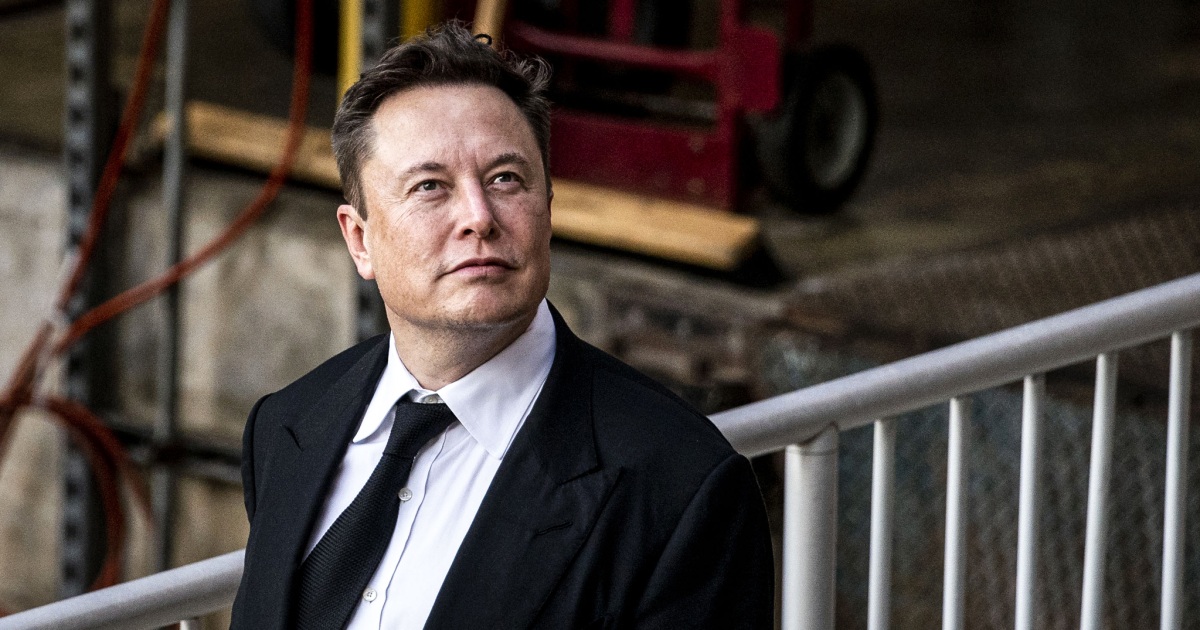
The United States is home to approximately 700 billionaires — the most of any country.
When the so-called Billionaires Income Tax, which would have required people in that demographic to pay yearly taxes on their assets (like stocks) that increase in value, was recently proposed to help fund President Joe Biden’s spending bill, some were quick to categorize it as the latest progressive stunt or say that the bill was “dead on arrival.” But tackling this type of wealth tax is necessary — and it’s something Democrats have worked toward for nearly four decades.
The richest Americans pay only a tiny fraction in taxes as a share of their income compared to the rest of us.
The proposal was left out of the social spending framework released by the White House on Thursday, so it may seem like it’s a lost cause, but simply giving up on it would be a mistake for a few reasons.
First, it would make our tax system less regressive — meaning the more people make, the less they pay in taxes — and more progressive. A tax like this would work toward decreasing the stark income inequality that exists. Let me paint a picture for you: When a worker — say, a waiter or a teacher — earns a dollar in wages, a certain amount is withheld in taxes. That’s how most of us live. However, when a billionaire makes (not earns) money on capital gains — which is when their stock value increases — usually no money is withheld, and the gain is taxed at a lower rate than that for the waiter or the teacher.
This is why there is so much hubbub around the issue: The richest Americans pay only a tiny fraction in taxes as a share of their income compared to the rest of us. An analysis from White House economists estimated that the wealthiest 400 families paid, on average, roughly 8 percent of $1.8 trillion in federal taxes between 2010 and 2018. (Here’s looking at you, Elon Musk and Jeff Bezos.) This is far lower than what the average American pays, which is around 14.6 percent, according to The Tax Foundation, an independent tax policy nonprofit organization. As it stands, our tax code is regressive.
Sounds like a bad oxymoron, right? Well, it’s true. The so-called Billionaires Income Tax, however, could close this loophole.
Secondly, the revenue generated from this tax could be put toward Biden’s Build Back Better plan, which includes infrastructure improvements, paid family leave, free lunch programs, subsidized day care, clean energy and lowering prescription drug costs. In fact, according to the advocacy group Americans for Tax Fairness and the progressive Washington think tank the Institute for Policy Studies, America’s billionaires have gained over $2.1 trillion during the Covid-19 pandemic, which is enough to pay 60 percent of the cost of Biden’s plan. So taxing these super-wealthy people is an opportunity to make revenue and put it toward the greater good. It is a step to expanding the social safety net and improving the lives of most working-class Americans and their families. Who doesn’t want that?
Lastly, it appears that a majority of Americans are into this sort of thing. One recent poll indicated that 3 in 5 voters support higher taxes on the wealthy and corporations to fund investments such as schools and community college tuition. Another poll from the summer showed nearly 70 percent of Republicans responded that they were bothered by the feeling that wealthy folks and giant corporations are not paying their share in taxes. Incredible, a plan that crosses party lines and is supported by the general public? It must be done. What’s the problem?
Some, including tax experts, have said this new system of taxation will be really complex and tough to implement. (Honestly? It cannot be any harder than the current convoluted way we do taxes right now.) Besides, research shows that a wealth tax would work and could stimulate the economy in many ways, bringing in revenue for important social programs.
Others questioned whether this move is constitutional, because, while the Constitution grants Congress the power to impose taxes, it states that “direct taxes” (of which there is no clear definition) should be allocated by states, such that every resident pays a share equal to the share of the state’s population. Senate Finance Committee Chairman Ron Wyden, D-Ore., who proposed the legislation, however, has explained that income taxes do not have to be left up to the state to handle — and he made clear that the tax on billionaires is on income, not wealth. Since the definition of “direct taxes” is fuzzy, no one should be jumping to conclude that taxing billionaires is unconstitutional.
Even with all of this, the Billionaires Income Tax seems to no longer be on the table. From the start, the debate has been about how we are going to pay for all of the social services in Biden’s proposal. We got a viable solution that lawmakers were too afraid to touch.
It’s unfortunate that our elected officials couldn’t all agree to put the needs of working-class Americans above partisan politics, and work together to advance the billionaires tax proposal — including weeding out any potential pitfalls. But that’s no reason it shouldn’t be put back on the table at the first available opportunity.
Source: | This article originally belongs to Nbcnews.com










